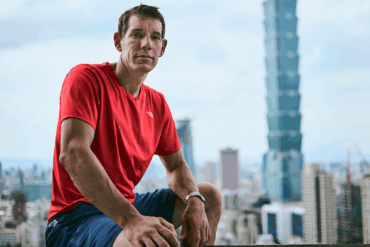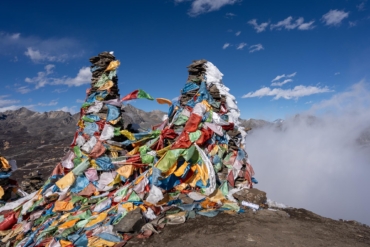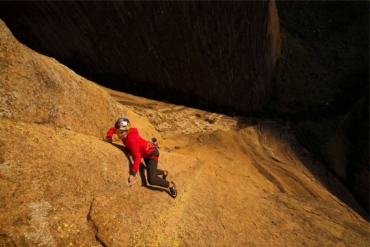For the climbers who visit Malawi, it’s not just about the abundance of cliffs waiting for first ascents — it’s about building community in one of the world’s poorest countries.
There’s no doubt that Malawi has nearly endless potential for climbing. Its abundant granite domes, cliffs, and boulders make it a world-class destination for all kinds of rockhounds. Longer routes range from 300 feet to an incredible 5,600 feet.
Malawi also has a surprisingly long history of climbing. The longest rock climb on the continent was established here in 1978, and someone made a guidebook in the ’80s using a typewriter.
Yet few people come here to climb.
With over half its population living in poverty, Malawi lacks much of the infrastructure of other climbing locales. That makes it more difficult to quickly turn Malawi into a climbing destination like Greece’s Kalymnos, which has exploded in popularity since the mid-’90s.
But a combination of Western climbers, stoked Malawians, and an international nonprofit want to try.
“You can make an analogy to Red River Gorge in the 90s or Yosemite in the 50s and 60s,” said Tyler Algeo, who founded the country’s first donation-based climbing gym. “There’s this super exciting time here, an ocean of rock, and an incredibly excited community … It’s a really excellent and unparalleled opportunity to do something different.”

Climber Builds a Life in Malawi
When Canadian climber and engineer Tyler Algeo arrived in Malawi in 2018 with his wife, they quickly made a new life for themselves.
The couple had long desired to live in a foreign country, especially in Africa, and fell in love with Malawi. Known as the “warm heart of Africa,” it’s a country famous for its friendly people.
But there’s not much to do there. The country lacks even a movie theater. Moreover, there are few places where foreign workers like Algeo could form relationships with Malawians.
That’s why the climbing wall in Algeo’s backyard quickly became a popular hang-out spot — for foreigners and locals alike. By the spring of 2019, dozens of people were coming to climb every Saturday, and Algeo’s landlord pulled the plug on festivities.
“I was seeing this potential for something greater,” Algeo said. “So we founded a local nonprofit and started raising money for a plot of land to build something bigger.”
That nonprofit became Climb Malawi, an outdoor climbing gym and outreach center near the nation’s capital.
Though climbing remains relatively new to most Malawians, they quickly embraced the sport, Algeo said. And the gym follows the Memphis Rox model, asking for a suggested donation instead of mandatory payment. As a result, both foreigners and locals come together for bouldering and community, Algeo said.
“Climbing is a relatively privileged sport, historically speaking. It’s dangerous, and it requires equipment that’s not super accessible,” he said. “But now we have a local climbing culture that you can be a part of and help grow. And that’s incredibly rewarding.”
Ver esta publicación en Instagram
Global Climbing Initiative Joins Movement
The nascent climbing community sparked by Algeo soon drew the attention of the Global Climbing Initiative (GCI). This international nonprofit helps burgeoning climbing communities grow by offering training, equipment, and resources. In 2019, the organization decided to support Algeo’s mission in Malawi.
So, the nonprofit helped Algeo gather and transport duffel bags full of gear to Malawi, including shoes, helmets, harnesses, ropes, carabiners, belay devices, drill bits, and bolts.
Scott Pagel, at that time the Director of Impact and Innovation for GCI, learned about the local politics from Algeo, who had met with numerous chiefs to get their permission to develop climbing. Pagel also got to visit a new bouldering area being developed south of the capital in a town called Dedza.
“Apart from the climbing — which was new and fun — I learned so much on this particular trip and had extraordinary conversations with Malawian climbers,” Pagel said.
“Additionally, I learned that prior to being involved with Climb Malawi, Stanley — and apparently many other Malawian climbers — had never left the city of Lilongwe. Making the two-hour drive to Dedza was a new and rich experience because the cost of transportation is prohibitive for most people living in the area.”

The Economics of Climbing Tourism
Anyone who follows outdoor sports understands that climbing has exploded in popularity over the last few decades. But it’s only recently that nonprofits including Access Fund have produced hard numbers about the positive economic impact on local communities.
The organization tapped James Maples, an associate professor of sociology at Eastern Kentucky University, to produce studies showing climbing’s impact. Climbers have contributed $4.5 million annually to a single community in Wyoming, Maples showed in a study. The professor also proved that climbers spent $8.7 million in a five-county area near Red River Gorge in 2021.
Those success stories are reflected in other international destinations like Siurana, Spain, or Ha Long Bay in Vietnam.
In the case of Malawi, a little bit will go a long way, Algeo said. A farmer’s haul for the entire season might be the equivalent of $100.
“It doesn’t take a lot of money to make a huge difference in the lives of these communities,” he said. “And helping them become less reliant on foreign aid.”
Ver esta publicación en Instagram
Addressing Climbing’s Colonial Roots
Climbing has reached a unique moment in its history.
Mountaineering and climbing have deep roots in colonialism and Western privilege. Yet there’s a growing movement in the outdoor industry, especially in climbing, to improve diversity and inclusion. More than that, climbers are becoming aware of their impact on local communities and the environment.
As a result, Algeo sees an opportunity for the sport’s expansion to include a drive for social change.
“Unlike cycling or soccer, it’s a small enough and young enough sport that we can actually make some change and see it,” Algeo said.
And that’s especially true in places where Malawi, he said. There, climbers can have an epic adventure and stay with locals and help grow their culture and economy.
“Climbing can really be this window into this better world,” he said. “It’s a big part of why I’m so passionate about Climb Malawi.”
To support Climb Malawi, visit their ongoing GoFundMe page, which raises money for expanding the gym and developing outdoor climbs.








